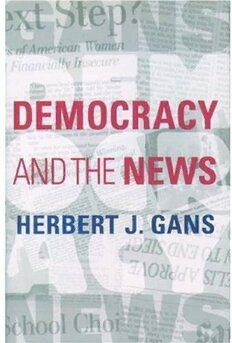
Democracy and the News PDF
183 Pages·2003·0.991 MB·English
Most books are stored in the elastic cloud where traffic is expensive. For this reason, we have a limit on daily download.
Preview Democracy and the News
Description:
American democracy was founded on the belief that ultimate power rests in an informed citizenry. But that belief appears naive in an era when private corporations manipulate public policy and the individual citizen is dwarfed by agencies, special interest groups, and other organizations that have a firm grasp on real political and economic power. In Democracy and the News, one of America's most astute social critics explores the crucial link between a weakened news media and weakened democracy. Building on his 1979 classic media critique Deciding What's News, Herbert Gans shows how, with the advent of cable news networks, the internet, and a proliferation of other sources, the role of contemporary journalists has shrunk, as the audience for news moves away from major print and electronic media to smaller and smaller outlets. Gans argues that journalism also suffers from assembly-line modes of production, with the major product being publicity for the president and other top political officials, the very people citizens most distrust. In such an environment, investigative journalism--which could offer citizens the information they need to make intelligent critical choices on a range of difficult issues--cannot flourish. But Gans makes several incisive suggestions about what the news media can do to recapture its role in American society and what political and economic changes might move us closer to a true citizen's democracy. Touching on questions of critical national importance, Democracy and the News sheds new light on the vital importance of a healthy news media for a healthy democracy.
See more
The list of books you might like
Most books are stored in the elastic cloud where traffic is expensive. For this reason, we have a limit on daily download.
